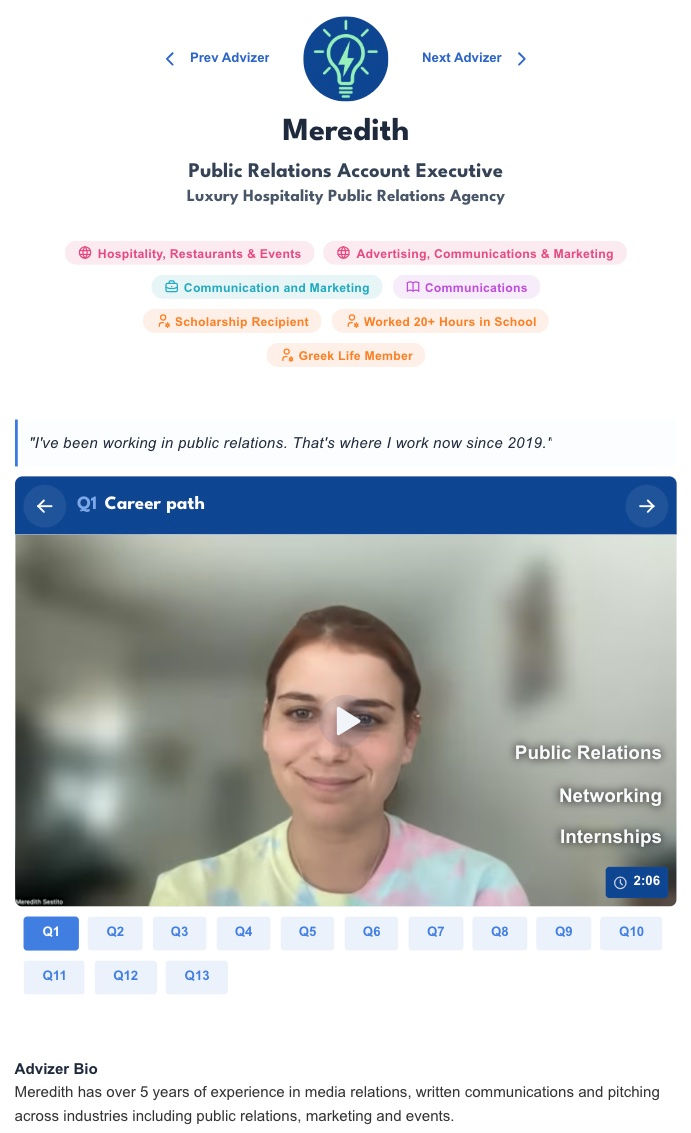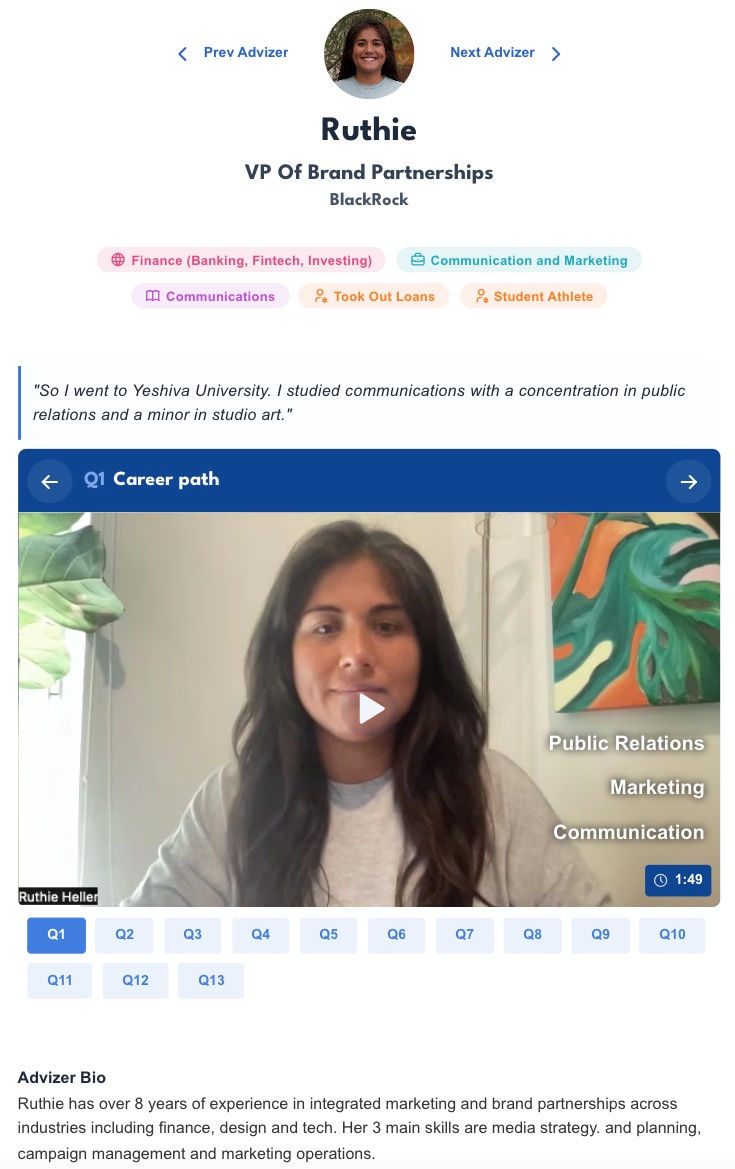Communications Careers Beyond Journalism: Exploring Unexpected Paths
- emilymcsherry2023
- Feb 17, 2025
- 3 min read

If you're a communications major wondering about career opportunities beyond traditional journalism, you might be surprised by the diverse and rewarding paths available. From public relations to human resources, social media to project management to data analytics, communications graduates are thriving in various industries. Let's explore some real-world examples of professionals who have leveraged their communications degrees in unexpected ways.
Public Relations: Crafting Stories and Building Relationships

Public relations offers an exciting career path for communications graduates interested in shaping narratives and managing client relationships. Meredith, a Public Relations Account Executive at a luxury hospitality PR agency, demonstrates how this field combines creative writing with strategic thinking.
"I've loved writing all of my life," Meredith shares. "So it's nice to be able to have a lot of writing projects." Her role involves managing media relations, coordinating stories, and representing prestigious properties. The ability to think creatively and adapt quickly is crucial, as "things can change quickly... You're going to have to be okay with that and know that you can adapt."
Human Resources: People-Focused Leadership
For those passionate about organizational development and employee relations, human resources offers a compelling career path. Stephanie, a Senior HR Manager at Precision Construction Services, explains how her communications background prepared her for success in HR: "HR touches every single aspect of an employee's lifecycle at a company from even before they're an employee," she notes. The role demands strong communications skills and emotional intelligence, with Stephanie emphasizing that "the two most important skills for any HR person are empathy and patience."
Social Media Management: Digital Storytelling
The rise of social media has created exciting opportunities for communications graduates. Steph, a Social Media Manager at a Web3 company, showcases how this field combines creativity with strategic thinking. She emphasizes the importance of staying current: "What works today will not work a year from now."
The role requires adaptability and technical skills, with Steph noting that familiarity with artificial intelligence is crucial. "[AI] is really helpful with taking a large body of information and then summarizing it in quick bits... I don't want people to be afraid of AI. I think it's important to embrace it... to be able to process information faster."
Project Management: Strategic Communication
Communications skills translate well into project management roles, as demonstrated by Alexandra, a Project/Program Manager at an NGO. She emphasizes how her background helps in managing international relationships and complex projects: "The soft skills of critical thinking, being able to think beyond maybe just a certain task or request, also thinking ahead of how things can be connected to one another" are crucial for success in this field.
Data Analytics: The Numbers Storyteller

Perhaps most surprisingly, some communications graduates find success in data analytics. Ruthie, a VP of Brand Partnerships, shows how communications skills can be valuable in translating data into actionable insights. "[By] being an analytical person and a curious person, someone who sees information and doesn't take it at face value, [but] really dives into the information and wants to learn more about where it comes from," she can create presentations that effectively communicate data to stakeholders.
Key Takeaways for Communications Majors
Develop Versatile Skills: Focus on building transferable skills like writing, critical thinking, and project management.
Embrace Technology: Stay current with digital tools and platforms, as technical literacy is valuable across industries.
Seek Diverse Experiences: Internships and entry-level positions can help you discover unexpected career paths that align with your interests.
Network Actively: Many of these professionals found their positions through networking and relationship building.
Getting Started
Entry-level positions across these fields often include titles like:
Public Relations Account Coordinator
HR Coordinator
Marketing Coordinator
Social Media Specialist
Project Coordinator
Junior Analyst
Remember, your communications degree provides a strong foundation in critical skills valued across industries. As Alexandra advises, "If you're unsure, like I was, of what industry you want to go into, larger organizations that either do market research, consulting, etc., can be really interesting [places] to get exposure to these different areas and maybe find a couple niche areas that you would want to pursue further."
Whether you're interested in crafting narratives, managing teams, analyzing data, or building digital communities, your communications background can open doors to diverse and fulfilling career opportunities. The key is to remain open to unexpected paths and continue developing your skills as you explore different options.
Want to learn more about how your specific background could translate into a career path? Visit us at Advize for more insights from successful, relatable professionals sharing real information to help.
If you ever want to reach out for help, advice or networking, shoot us an email at hello@advizehub.com or message us on Slack!
Wishing you success,
Emily McSherry
Founder & CEO

![[NEW FEATURE 🗣️] Stop Watching. Start Deciding.](https://static.wixstatic.com/media/23dc45_3a5b0151bd9b48a481071c01d18ddcfc~mv2.png/v1/fill/w_980,h_551,al_c,q_90,usm_0.66_1.00_0.01,enc_avif,quality_auto/23dc45_3a5b0151bd9b48a481071c01d18ddcfc~mv2.png)

